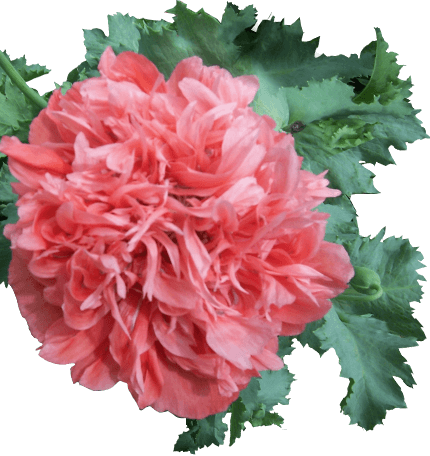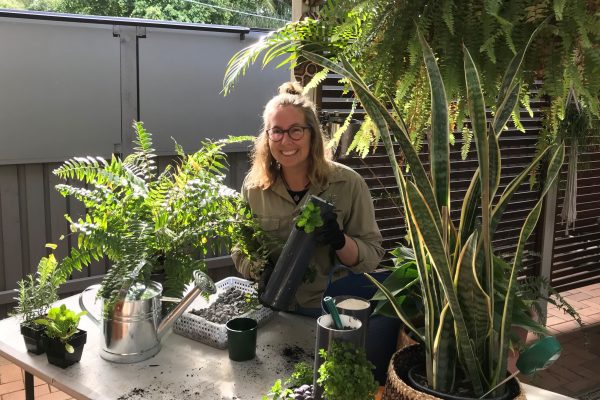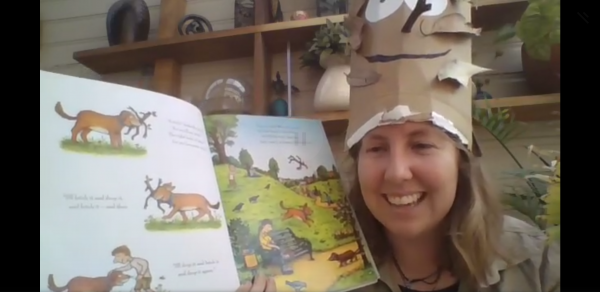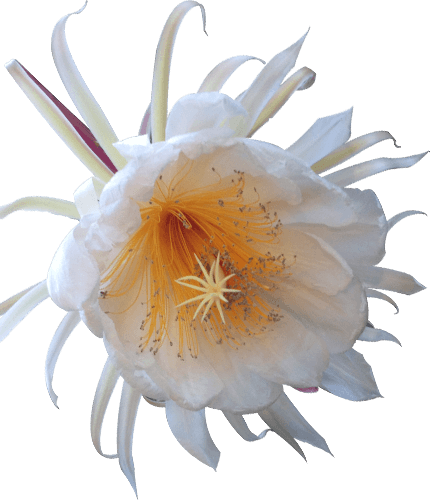
22 Oct 2021
Connecting students with nature

Backyard virtual excursion setup
Connecting students with nature, virtually
The extended lockdown in Sydney has forced the team at the Royal Botanic Gardens in Sydney to think differently about how we connect to our school audiences, at a time where we weren’t allowed on site and working from our living rooms. We’ve been doing streams of our lessons for early learning, primary and secondary audiences through a range of mediums including Zoom, Microsoft Teams, Facebook Live and YouTube Live. It has been a big learning experience, but one that has connected us to tens of thousands of students from across NSW and Australia as they’ve been learning at home this year.
Virtual Excursions (also known as Interactive Digital Learning, Video Conferencing and several more) have been common place in the USA for over 20 years, but in Australia have had a very stop-start trajectory over the last 10 years until 2020 when everybody was forced to learn in an online environment, and now they are here to stay. We’ve seen an exponential increase in the number of teachers looking for virtual learning experiences for their students – DART (Distance and Rural Technologies) Learning, a facility of the NSW Department of Education to provide and co-ordinate interactive video excursions for NSW schools, reported that 750,000 students were booked into virtual programs in Week 8 Term 3, a number several times higher than they would have previously seen in an entire year prior to 2020.
For my team, the hardest part of developing virtual excursions this year has been that, from the outside, they appear to go against all of our instincts as outdoor educators – how can we engage students with nature when they are connecting to us from inside, on a screen?
The key has been to be incorporate hands-on activities into the programs, using materials that students can find at home. Whether it is making a puggle from sticks and toilet paper rolls, making plant pressings, building seaweed models, or building vertical herb gardens and more. This part is key to keeping students engaged throughout the session, by giving them a way to participate during or after and have something tangible that they’ve created – and often a reason to go outside to gather the materials they need!
Some of the highlights have been:
- Connecting to our Seedlings Nature School families on Facebook Live for the past three months, with Storytime and craft on a Thursday morning. Our families have been sharing pictures of their creations with us and sharing selfies from our Nature Play areas as they visit the Gardens post-lockdown.
- Having thousands of students participate in Project Codium and building their own model Codium fragile with a “Message on a Bottle” pledge for the environment that can be submitted to be included at an upcoming exhibition in the Gardens.
- The Sydney Science Trail for National Science Week – with 25 live events, and an online trail accessed by over 45,000 families throughout August and September.
- School Holiday craft time throughout the Spring school holidays, with 3 YouTube Live sessions a week with craft and nature play activities for primary school students.
We’re really excited to be able to be back on site in the Gardens, and connecting students to the Gardens virtually (even if it does attract some strange look from passers-by!), and are looking at how to improve what we’ve created in our living rooms and backyards using our beautiful surrounds.
A final note, the ability to gain feedback has been an interesting journey as we all know how quickly the comments section can spiral out of control. But, when it is on topic and constructive, the chat section of our Teams and Zoom calls consistently makes us smile – particularly when we get told of a change in perspective on the topic.
Borrowing from one of the students who attended our “Super Seeds” program this week, Seed You Later.

Stickman on virtual Nature school

